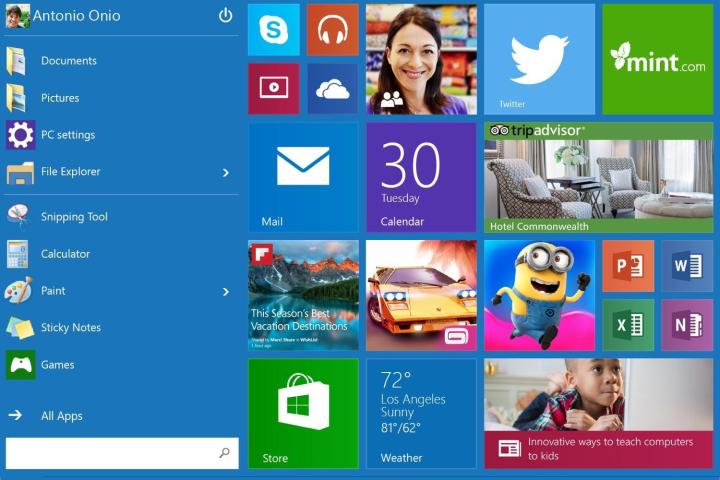
Until now, if you wanted to shop for videos, music, or apps, they were all to be found in separate stores. In an update currently rolling out, buying that content has gotten simpler — though the Music and Video apps that were added to the Windows 10 Technical Preview late last month are still how users will play back their content.
A “Movies & TV” section was added to the Store beta last month, but no content was actually accessible. Microsoft turned the section on yesterday, with the full rollout expected to take roughly 24 hours. Once members of the Windows Insider program running the Technical Preview have received the update, they’ll be able to rent or purchase movies and TV shows from within the store app and play them in the Video Preview app.
“The experience you will see today is unfinished and we have a lot more work to do,” Microsoft’s Brandon LeBlanc wrote on Blogging Windows. No cast and crew information is available, for example, and for now video playback is limited to streaming only. Offline download capability is on the way, LeBlanc wrote.
Music has yet to be added to the store beta, but will be added in the coming weeks. LeBlanc mentions that Microsoft will have much more to say about the Store beta at the company’s Build 2015 conference later this month.
For the full list of countries, as well as information on what to do if the Store app crashes after the update, see Microsoft’s blog post.
Editors' Recommendations
- Scores of people are downgrading back to Windows 10
- Windows 11 tips and tricks: 8 hidden settings you need to try
- Windows 11 24H2 or Windows 12? Here’s what’s coming soon
- The Surface Pro 10 sounds amazing, and it may be coming soon
- 7 beloved Windows apps that Microsoft has killed over the years


